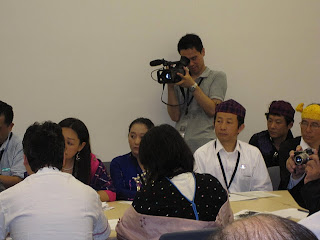International funds for Burmese refugees living in Thailand are being slashed — ZOA, a major educational donor plans to stop operating in the camps by 2012.
Recent budget cuts to international educational organisations operating in seven refugee camps along the Thai-Burmese border have resulted in many teachers leaving.
Teachers told Karen News that the coming year will be a challenge for educational groups just to keep camp schools open.
Schools in the refugee camps are supported by ZOA Refugee Care Thailand, a Netherlands-based NGO that has been providing educational support since 1997.
A ZOA official said that their organization faces severe funding cuts from major European donors that will affect their support in the camps and predicted ZOA will stop working along the Thai Burma border in 2012.
Naw Hsi Hsa Paw, an education coordinator at Umphiem Mai refugee camp told Karen News that ZOA will cut more than half of its budget for supporting educational infrastructures and teacher salaries in 2011-2012.
“Support for teachers’ salaries this year will be decreased a lot. In previous years, school teachers got between 700 Baht to 1,400 Baht a month, but this year, we estimated that on average each school teacher’s salary will drop to 250 baht a month. As a result, many school teachers have quit and we are having difficulties replacing them.”
Despite the cuts, Naw Hsi Hsa Paw said some teachers continued to teach, as they did not want to abandon the schools or students. But many teachers left for better paid jobs or changed their profession to support their families.
In an interview with Karen News, Naw Khin Min Na, a primary school headmistress in Tham Hin camp said it is hard to replace good teachers.
“This year, teachers will only get 250 baht a month. This has caused some teachers to leave schools in our camp. We now have to find new teachers and train them to replace those who’ve left.”
In spite of basic food items been provided for teachers working in the refugee camps, it is not enough to support their families.
Naw Hsi Hsa Paw explained.
“There are difficulties in every school. But now, we have to prioritize education for the children. In Umphiem camp, we are trying to replace teachers who left with new teachers. We will also try to find ways to get more support for them and their families.”
Meanwhile, because of the decreasing support from ZOA, the Karen Refugee Committee has increased school fees in the camps to help keep the schools open. Schoolchildren fees for this year are Kindergarten to grade 6 pay 100 baht, grade 7 to grade 9 200 baht and grade 10 to 12 pay 300 baht. For non-refugees the sums may be small but for refugee families it can be the difference between your child going to school or not.
A refugee mother living in Nu Po camp told Karen News that she is stressed out with all the expenses she has to find for her children this year.
“I have five children and school fees alone cost me over 1,000 baht. I haven’t bought them umbrella, bags, uniform for their schooling yet. As I don’t have any income, it really stresses me.”
Many parents in the refugee camps said that they have to borrow money to send their children to school or have promised the school they would pay the fees later.
Teacher Ma Law Tha runs a post-ten the Karen Economic and Development Course (KEDC) in Nu Po camp. She told Karen News that in previous years her course was fully supported by ZOA, but this year they stopped all support.
Ma Law Tha said the school administration costs and teacher support in the past were all provided by ZOA but this year without their support it would be difficult running the school. She said much-needed repairs to school buildings would also have to be put on hold.
“Although there are difficulties, we are not sitting back. We can’t be discouraged. We will continue with what we have. If we stop the course, it will hurt the education of the students. Our top priority is to educate, we will continue our course by asking teachers to teach voluntarily without payment. It’s the only option we have left.”
According to a Karen Refugee Committee report, the decrease of funds to support refugee camps along the border has meant the education sector is not the only affected – food, health and areas of aid are also suffering from cuts to INGO funding.
Karen leaders have urged donor organizations, refugee camp authorities and community based organizations to work together to find the best solution for the refugee camps. They also warned the 140,000 refugees living in the seven





























